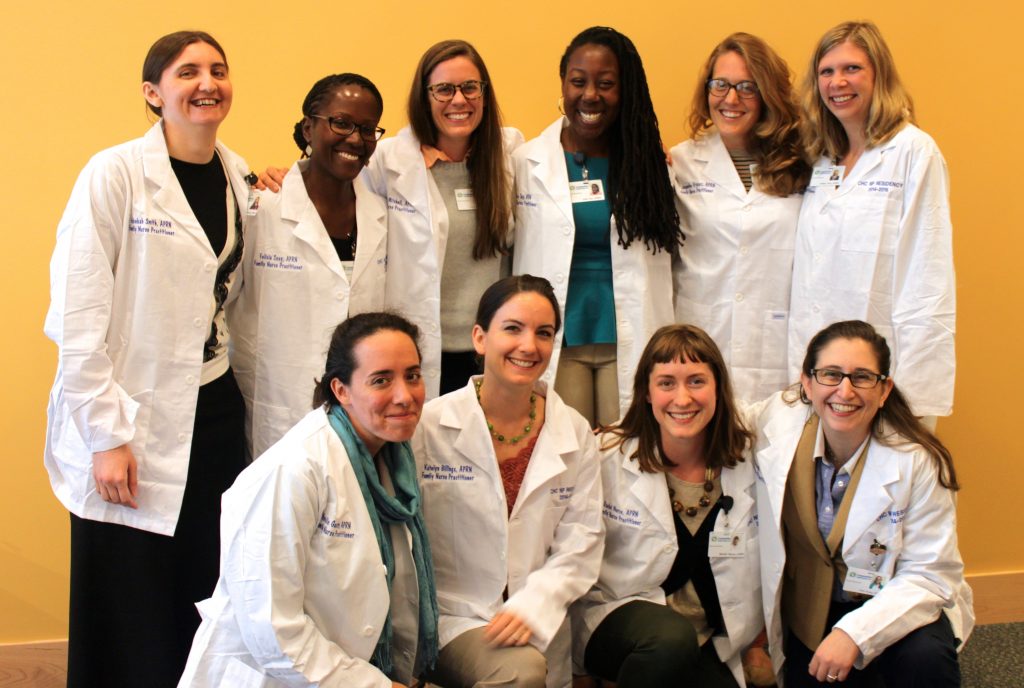Background and History of America’s First Nurse Practitioner Residency Training Program
The leadership of Community Health Center, Inc. shares a common belief that the near- and long-term shortage of primary care providers, coupled with the predicted aging of the current physician workforce, and the increasing demands for primary care by newly insured patients under the Affordable Care Act, calls for new and innovative approaches. Given their professional orientation, and training towards holistic care that integrates the personal, clinical, familial, social, and community aspects of preventive, routine, and chronic illness care into practice, primary care nurse practitioners are ideal candidates to serve as primary care providers (PCPs) in community health centers. The problem: The intensity and clinical complexity that is the ‘norm’ for the patient population in FQHCs, coupled with the abundant socio-behavioral challenges, presents significant challenges and a ‘confidence/competence gap’ among new nurse practitioners seeking to provide primary care in these settings.
This gap may deter NPs from choosing FQHCs, as well as discourage FQHCs from hiring new NPs. When they are hired, this gap is a source of stress and distress for both parties as they work through the transition in the absence of a formal support structure. CHC’s study of the issue concluded that this gap is largely due to the systemic lack of post-graduate residency training for new NPs. While graduate schools leading to certification as a nurse practitioner at master’s degree and clinical doctorate levels are superb and offer an excellent education with significant clinical training, it is only the intensive, full-time, extended immersion training and education experience within the service delivery organization, the hallmark of residency training, that will successfully address this gap.
In 2007, CHC launched the country’s first primary care NP Residency Training Program.

Over the past 16 years, CHC has expanded its program capacity with additional trainees and training tracks. In 2014, CHC launched a new venture providing remote hosting to NP Residency Training programs across the country. In 2015, the program expanded to include a Psychiatric Nurse Practitioner track. In 2017, we launched a one year post-residency opportunity with our Center for Key Populations. In 2017, CHC’s Family Nurse Practitioner Residency Program was accredited by the Consortium for Advanced Practice Providers. CHC also launched new training tracks in Pediatrics and Adult-Gerontology to further expand the scope of its training opportunities.
From the beginning, CHC’s intent was to create a program that could and would be nationally replicated. To that end, it has developed significant infrastructure including curriculum, evaluation tools, preceptor trainings, didactic content, recruitment strategies, and marketing materials. In 2018, the team published its first book: “Training the Next Generation: Residency and Fellowship Programs for Nurse Practitioners in Community Health Centers,” which is available to read online here. We have also done extensive work educating professional associations, policy leaders, Congress, and other constituencies about the need for NP Residency Training and our model. Our success is reflected in the numbers of new NP Residency Training programs that have been established.
